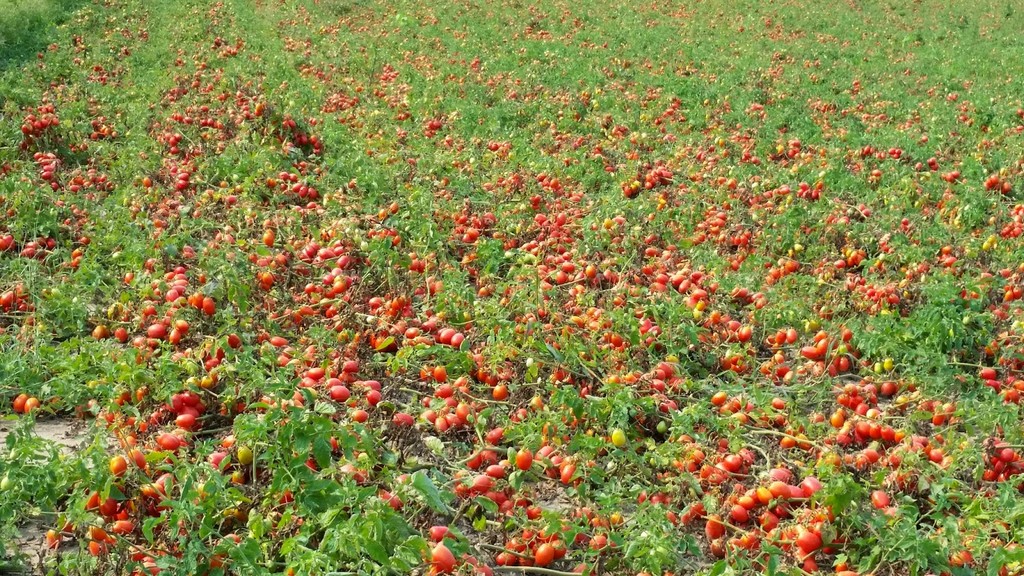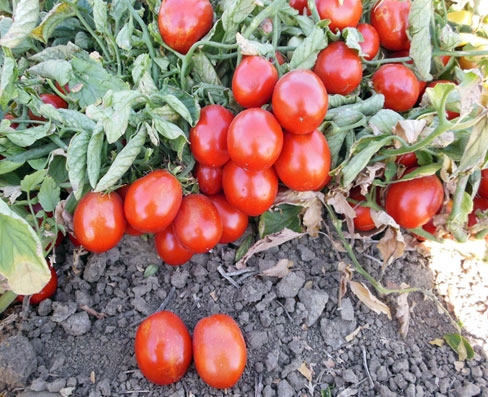By Armando Martinez, Processing Tomato Product Development, United Genetics Seeds Company
Successful variety introduction into key markets depends on information obtained from many different entities and disciplines throughout the introduction period. Understanding the markets, essential key traits that are required, grower needs, inputs and limitations of the market, processor needs for their final end products and competition – are all a must. Long-term success is dependent on proper testing throughout all phases of the introduction process. Variety development is long and tedious. In any successful variety development program, speed-to-market is essential. That cannot be accomplished without good relationships established between all components of the tomato business, from seed to plate.
Breeders develop hybrids with key traits, i.e., disease resistance, maturity, field performance, processing characteristics, but are constantly obtaining feedback from others directly involved in assisting with decisions that will lead to a successful introduction. Seed suppliers rely on seed distributors for critical information during the development period. Confirmation of certain traits is accomplished by calling on internal and external laboratories.
Understanding the variety before introduction is critical. Does the hybrid meet all the criteria and have the necessary traits? What are the advantages over existing varieties already used or being introduced? Are competitor varieties further along in the introduction with better traits and performance for the target market?
 Trialing
TrialingTrialing is the key component at the very center of the variety advancement process. Trialing efforts in any market are dependent on grower cooperation throughout the growing regions in those markets. Multiple trials are established within the different growing regions in the fields provided by partner growers. These trials are set up by both seed suppliers and seed distributors. Third party unbiased trialing is also conducted, such as trials carried out by university cooperative extension specialists. Data collected from the evaluation of these trials is used to advance varieties through the different stages of the process (field performance, chemistry, disease resistance and target end use). The trials become larger in scale and surface area as varieties continue to advance to final stages prior to commercial distribution. Customers and processors are invited to observe these trials and provide input on the potential of the varieties. During this advancing period and prior to distribution, information must get back to the seed production managers to ensure the proper quantities of parental stock-seeds are available for hybrid seed production. Decisions to commercialize a variety are finalized by the seed producers, once all inputs from those involved are considered (seed distributors, processors, growers, marketing).
Main Traits
Supply and demand for tomato products around the world have a direct impact on the importance of individual traits within variety development programs. The goal is to provide a reliable source and steady supply of product for processors to meet their processing needs and quality goals.
Seed suppliers are introducing varieties at a much more rapid pace. The longevity of top selling varieties in key markets has been reduced in recent years. In the existing oversupplied market-place, pricing pressure on raw product procurement is a direct concern to producers. Field performance is essential. Yield and the ability of the variety to hold (Extended Field Holding capacity or EFH) in the field are priorities for growers.
When disease pressure reaches levels that have an economic impact in any given year, resistance to that particular disease becomes a requirement in breeding programs and must be considered an important aspect in assisting to reduce inputs while providing a reliable source of product for processors.
The end use of the product determines the priority in terms of the performance of the chemistry composition. Paste producers request varieties that perform well in a hot-break process. Varieties for hot-break paste production are typically high viscosity varieties with high serum viscosity values and low Bostwick values. Brix levels for these varieties are traditionally not very high and play less of a role in the selection process.
In the case of cold-break paste production and peeled/diced products, thin viscosity, brix and color are all important traits, as well as the peel recovery of the variety for peeled/diced product. Fruit flavor, albeit illusive, would also be important in such cold-break products. Typical lab chemistry analysis is more suitable for selecting varieties for hot-break processing. Developing and utilizing different quality testing procedures would be helpful in assisting products that are more suitable for cold-break paste production and peeled products.
Maturity is an important trait. Earliness provides product for processors who are trying to extend their season or manage late season risks associated with inclement weather (rainfall and low temperatures) experienced in regions with short seasons. Later maturing varieties typically provide better chemistry and field performance than early varieties.
 Selecting varieties that provide good field performance, disease resistance and the fruit quality necessary for the intended end use is a priority for any breeding program. The area and environment where the variety will be grown determines the must-have disease resistance package and the varieties to be selected for the target end use.
Selecting varieties that provide good field performance, disease resistance and the fruit quality necessary for the intended end use is a priority for any breeding program. The area and environment where the variety will be grown determines the must-have disease resistance package and the varieties to be selected for the target end use.
The following traits would all be important and critical according to the specific market intended as well as environmental growing conditions and agronomic practices.
• Yield and extended field holding / storage (EFH or EFS).
• Foliage cover and vine type – prostrate vine habit, large upright or compact. This is important in specific growing areas or markets with adverse weather conditions for cultivation.
• Fruit quality – fruit size and shape, internal color, wall thickness and fruit firmness, peelability.
• Viscosity – thin, intermediate or thick.
• Maturity – earliness, mid-season, late.
• Disease resistance package – Verticillium (2), Fusarium (races 1,2,3), Nematodes (N), Bacterial Speck (Pst), Tomato spotted wilt virus (TSWV), Fusarium crown rot (Frl), Tomato yellow leaf curl (TY), Powdery mildew (Lv), Bacterial spot (Xv), Bacterial wilt.
Additional disease resistances to look for in the future:
• New nematode source of resistance – due to nematode resistance breaking strains observed in several regions.
• New source of resistance for TSWV – due to TSWV breaking strains in certain regions.
• Curly top virus resistance.
• Resistance to Clavibacter michiganensis (Cmm).
Future research for breeding programs:
• Rootstock development for grafting.
• Reduction in pH levels.
• Water stress.
• Salt tolerance.
Breeding programs must remain ahead of the changes and demands of the industry. In traditional breeding, new varieties may take between 5 to 8 years of development process before they are distributed commercially.
Source: United Genetics


































